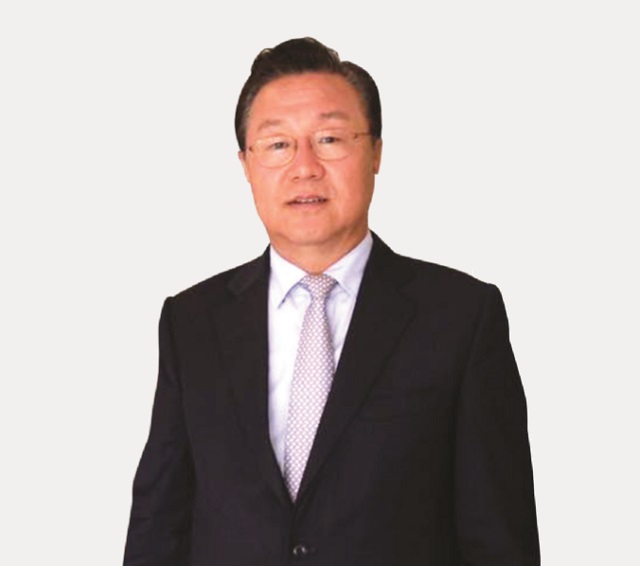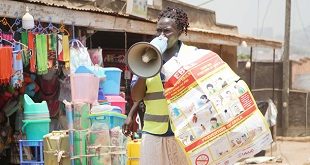
PARK Jong Dae the South Korean ambassador says there isn’t one particular economic policy that can foster the development of a country. He talks to The Independent’s Nicole Namubiru about how South Korea transformed from being a third world country to become a first world power in a decade.
You have been in Uganda for quite a while now, over your time here what political, social or even economic changes have you seen and liked?
I came six years ago. The presidential general elections are an indicator of democracy. Uganda is also a very dynamic country with very open-minded people who exchange views and opinions. The environment is nice, the people are very warm. People have a mindset for development but there are a few challenges. One of the greatest challenges is that people are more drawn to knowledge rather than taking action. It’s not a matter of knowing what policies to be used to foster development but rather taking action.
South Korea is cited as a development miracle. What is it that African countries aren’t doing right to get to your current industrialised status?
The recipe for success in Korea is not a miraculous but rather a result of fundamental steps we took. Our leaders chose a policy that they believed would foster development for all as the income inequality in South Korea at the time was quite high. The policy of SaemaulUdong had to look at the interests of society rather than personal interest. This built the confidence of the people in their leadership. The confidence of the people in the system of governance helps them work for the good of their country thus leading to development. There is room for that in Uganda. It is more important that the people’s mindset toward the development is upbeat than the state they are in.
You have in the past talked about the role of strong leadership and the sacrifice of the people in developing South Korea. What is lacking in Uganda?
There should be more discipline among the people if development is to take place. It is a given that the government is limited. Even a rich government cannot take care of everything and everyone in their country. And before you have a well established government and nation, the government cannot fully carry the responsibility of the people. It is a huge burden on the government. The Ugandan people ought to take development in their hands. And I know it is hard since we live an era of globalisation where other developed countries have their governments take care of its people. On the other hand, South Korean people were responsible for the development of South Korea rather than the government. Dubai for instance has very strong convictions and ownership of their resources. The people of Dubai are actively involved in the development. The whole burden isn’t left to the leadership.
The Ugandan leadership has focused on infrastructural development but some people are criticising this approach? Drawing on lessons from your home country, what would you advise the leadership on this?
I am supportive of Uganda’s goal to put emphasis of infrastructure development. Looking at welfare of the people versus investment in business for a low developed country would not make much sense. Yet, for sustainable development you will have to invest in what will bring in the money for the welfare of the people. South Korea back in the day did the same. In the early 1960s, we invested in bridges, railways, roads, ports among others. These pushed our development. Though in this age it is hard to ignore welfare, it comes at a high cost. The good news is that Uganda is better placed than South Korea was in the 1960s or 1970s. Uganda has better weather, better soils as opposed to Korea which is rugged and mountainous with very scarce arable soils. Besides, there are more investors attracted to do business in Uganda today. There is no reason Uganda shouldn’t develop. I am very hopeful Uganda can make it.
I understand the SaemaulUndong Centre of Korea has been conducting programmes in Uganda. What achievements have been made in these programmes so far?
SaemaulUndong was a programme rolled out by South Korean leaders in the 1970s for purposes of development. This programme conducted wide campaigns in South Korea to have people’s mindsets change towards seeing Korea as a developed country. They had to develop positive mindsets and optimism toward the same if they were to see their country developed.
The government then gave each village bags of cement and iron sheets and asked them to do whatever they chose. Schools were built, bridges constructed among other developments. We introduced the same programme to Uganda before I came in 2007. It was introduced as a pilot project in villages. As a result there have been exchange programmes taking place between the two countries where Ugandan local leaders and farmers have been taken to South Korea to learn about SaemaulUndong and transfer their knowledge back to their villages for development.
There has been a gradual progress since it was first launched in Uganda ten years ago. The same energy through this programme is what we want to spread in the villages of Kabarole, Isingiro, Mpigi among others. With it they have widened and flattened and widened murram roads, built schools, set up microfinance banks, and constructed a church in one of the villages. The aim is to propel people to come together to do things that they wouldn’t have done as individuals. This challenges them not to always look at the government for all help. At least 200 villages are practicing it.
 The Independent Uganda: You get the Truth we Pay the Price
The Independent Uganda: You get the Truth we Pay the Price



